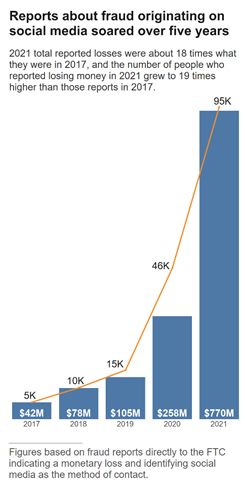Despite Elon Musk and X CEO Linda Yaccarino’s eagerness to tout the future opportunities of the app, and it’s mission to become “the best, most useful platform” for consumers everywhere, the specifics of Musk’s “everything app” vision remain fairly vague, and unclear as to how exactly they’ll appeal to more users.
Though we are getting more hints along the way, as Musk and Yaccarino provide additional notes and pointers in their various representations, in different capacities.
This week, Yaccarino is meeting with bankers to discuss X’s growth strategy, in order to reassure them of its plan to get the business back to profit. Yaccarino recently noted that X will likely return to profit early next year, though with X’s advertiser numbers still significantly down on the pre-Elon era, it remains to be seen whether that’s actually a viable, realistic target.
And on top of that, X still needs to be able to convince its business partners that it is indeed going to be able to enact its ambitious growth plan for the app.
A key element in this will be commerce, and facilitating payments and transactions in-stream. X is already taking steps in this direction, by applying for payment licenses in the U.S. to facilitate its next-level shopping push.
And that may start with transactions in DMs, according to new reports.
As per The Information:
“X managers are considering ways of using direct messages on the platform to offer one-click checkout to X users, according to three people familiar with the situation. Staffers have met with e-commerce software firms to canvas possible software tools for offering such a product, the people said.”
That also aligns with X’s subscription push, because aside from providing an additional revenue stream, and (at least theoretically) differentiating real human accounts from bots, it would also mean that more people are connecting a payment option to their X account, which could make it easier to get them spending in-stream.
And based on past notes, Elon actually plans to expand on this even further, in facilitating full banking tools within the X platform, including finance services, loans, etc. But the starting point would be shopping, and enabling simplified, streamlined purchases within the app.
That’s also an element that’s been factored into X’s new content deal with Paris Hilton, its first direct celebrity partnership under Musk, which includes specific note of “live-shopping broadcasts” within the deal.
X doesn’t currently offer any kind of live-stream shopping element, but seemingly, that is coming, with all of the building blocks now being put in place to facilitate live interaction streams, where users can buy products direct in the app.
Live shopping has been a key growth element for Asian social media apps, with Douyin (the Chinese version of TikTok), Kuaishou, and others sparking a live commerce revolution, which has now become a $500 billion industry in itself.
That, combined with the rise of eCommerce as a result of COVID-19, has seen many Western apps try to integrate the same. But thus far, user response has been lukewarm, with most platforms now shifting focus away from live shopping elements, in order to allocate resources onto more proven growth aspects.
Could X get this right, and could that become a key trigger for its broader shift into transactional commerce, and encouraging users to buy in-stream?
It seems like a big ask, especially with X’s now much smaller development team. But that’s apparently one of its main areas of focus, as the X team looks to shift perceptions of the app, and get users spending and sending money, as a launchpad for its bigger transition.
Though again, it remains vague.
Musk’s “everything app” plan stems from a concept that he reportedly came up with back in the early 2000’s, at the beginning of PayPal, of which he was part of the foundational group. Musk has long held that PayPal is only “a halfway version” of its full potential, with a broader payments and banking-enabled app able to facilitate virtually every transaction, in quick, easy, and cost-effective ways.
The “Western WeChat” has long been held up as an example of what’s possible, referring to the ubiquity of WeChat in China, which has become a staple within modern Chinese society, with people using their WeChat account to buy groceries, buy train tickets, pay bills, book appointments. Basically, all of your transactional interactions can be conducted within the WeChat network, and connected to your digital identity, which includes your bank info, simply by scanning a bar code with the app.
Various social platforms have tried, and failed, to enact the same in non-Asian markets, with Meta, TikTok, and YouTube among several examples of apps that have sought to branch into payments, only to be met with regulatory challenges, consumer hesitance, and general lack of interest in such offerings.
The bottom line is that Western users are less trusting of corporations in this sense, partly because WeChat, like all Chinese businesses, is more heavily regulated by the government, thus imbuing more trust in such services, and partly due to past abuses of consumer data by social media companies, or past scams that have caught many people out within social apps.
Indeed, the FTC reported a massive spike in social media scam activity in 2021, impacting 95k people, and costing them a cumulative $770 million.

That makes consumers less likely to put their trust in social platforms, and instead revert to dedicated, and trusted, shopping platforms instead, including Amazon, eBay, etc. Facebook has been able to capture some of the related market, via Marketplace, but even that has been fraught with concerns, limiting take-up.
It’s difficult to see, then, how within this scenario, X expects to be able to convince users to trust it with their money. And that’s if X Corp is able to secure the necessary approvals to facilitate such in the first place.
It’s still unclear, but X is slowly revealing more of its global takeover plans, with the rate of innovation at the app “exhilarating to the point of intoxicating” according to Yaccarino’s latest bombastic description.
We, from the user standpoint, are not seeing that as yet. But maybe, if it can get all the regulatory stamps of approval, and progress its shopping developments, that could become a thing.
But it’ll take a lot of development, and time, which X may not be able to weather, not without taking significant losses in the immediate term.
The concern is that Elon’s ambition is bigger than his runway, but then again, the same could have been said about his other projects.



